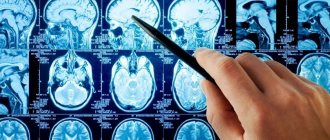Medical information is reliable Checked by Shaidullin Renat Flyurovich
Reason and emotions... They write a lot about them and often talk about them. Mismatch between the intellectual and emotional spheres at the personal level, the destruction of their delicate balance is a real threat to health. Psychiatrists and psychologists call inconsistency (disconnection) of a person’s inner “I” schizoid personality disorder (SPD). The schizoid organization of the psyche is full of contrasts: a person’s external emotionlessness turns into internal creativity, the desire to protect personal boundaries correlates with the desire to violate the boundaries of another person. How does the disease manifest? Is it a death sentence or treatable?
Specialists at Dr. Isaev’s psychiatric clinic provide treatment for schizoid personality disorder in Moscow, invariably achieving stable results in remission. If you suspect that your subtle psycho-emotional world is disturbed and are trying to understand the causes of this condition, call us at the phone number listed on the website. The psychologist on duty will advise you free of charge and invite you to attend an appointment with a specialized doctor. Don’t refuse to get help, because correction in the early stages gives lasting results in a short time.
What is schizoid personality disorder?
Violations of this profile are disorders of an eccentric nature. The complexity of the dysfunction lies in the negative impact of SPD on all areas of life. Uncommunicative people, immersed in their own inner world, cannot create full-fledged families, and have a poor attitude towards fulfilling their own responsibilities. Conversation with themselves is more important to them than dialogue with others. They rarely smile and are prone to constant fantasizing.
Psychiatrists do not distinguish the concept of “schizoid” syndrome. It is often understood as Asperger's syndrome (a type of autism). While outwardly similar in the desire for isolation and avoidance of contact with the external environment, schizoid personality disorder and Asperger's disease have significant differences in symptoms and manifest themselves in different ways. While Asperger's syndrome is clearly evident in early childhood, SPD only becomes clear in adolescence.
Accentuation has nothing to do with impaired socialization. Persons with schizoid accentuation easily adapt to the situation. They interact well with society, are successful in their careers and are quite capable of building harmonious relationships with other people. The only thing that can “bring them closer” to schizoids is stress. Under conditions of strong psychological stress, the boundaries between accentuation and disorder are blurred. Being in conditions of constant stress threatens people with accentuation of the schizoid type with the development of schizoid personality disorder.
The psychiatric department of Dr. Isaev’s clinic specializes, among other things, in the treatment of patients with SPD. Patients with a complex illness bordering on schizophrenia require special attention from doctors. It should be noted that the disease often manifests itself in people who have relatives with schizophrenia. Only experienced doctors are able to conduct a competent diagnosis, distinguish between a disorder, syndrome, accentuation and prescribe competent treatment.
Strengths of the Schizoid personality type
One of the most pleasant features of Schizoid types is their stability in preferences. If I chose this (food, business, partner), then I will do it, eat it, love it. They are very constant in marriage, business and food .
Almost always, Schizoids have some kind of chocolate with them, which will not necessarily be tasty, but will be high in calories, or energy, or something else, depending on the idea. Moreover, this will be a certain set of preferences in the same food. For many years in a row, a person can eat the same dish every day, then stop eating altogether, and never return to it. And not because I got tired of it, but because the concept changed.
Hugh Laurie and Oksana Fandera
For Schizoid people, the body is also not a body, but a tool. Phrases like: “Do you want some tea? “I am no, my body is yes!” are completely normal for them.
These are also “bags of insights.” They are able to gain insights from scratch. They will always understand something, and it will always be at the level of the highest revelation. The main thing is for yourself.
Schizoid people have their own logic, which is often incomprehensible to others. First of all, because they do not strive to convey it to others. If you take some complex sine wave graph, and try to write some related text along the line, then cross out one fifth of the text at the top, then the rest is what Schizoid says out loud. And therefore it is impossible to understand him: some thoughts are flowing, what he said is unclear, but in fact everything is logical, because all the connections are built inside.
Moreover, Schizoid sees little point in explaining his logic, which sounds a lot like snobbery:
“What can I explain to you if you still don’t understand, so grab what you give!”
And a lot of very good and advantageous qualities:
- Respect for other people's boundaries.
- Intelligence (respect for yourself and your interlocutor).
- Aristocratic (selected circle, high rules).
- Owners of a large house, farm, managers.
- Ambitious (to be the best, to stand out), vain.
- Clannishness (my clan, my family, my home).
- Smart, well-read, inquisitive.
- A rich inner world of ideas and fantasies.
- Development of thinking (meticulousness, analysis-synthesis, induction-deduction).
- Respect for the complex (complex tasks, structures, ideas, etc.).
- Ambitious, aristocratic.
Causes of the disease
According to statistics, 5% of the planet's population suffers from pathology. The tendency to develop the disease manifests itself in childhood. Hyperactive children are usually hypersensitive. While studying psychopathology, scientists noticed that already in infancy such children clearly define their personal boundaries, reacting rather strangely to the touch of adults. They instinctively deviate when their parents approach.
Schizoid personality organization does not mean that it is the beginning of the schizophrenic process and will contribute to the development of schizophrenia. Moreover, a large percentage of schizophrenics are people who previously had pronounced signs of SPD syndrome. A person with schizoid personality disorder is capable of self-identification: he experiences shame, guilt and perceives the world in its real manifestation. Concern for safety is the main manifestation of the disease.
There are several theories explaining the reasons for the development of the disease. A number of researchers believe that SPD is stimulated by gene mutations (mutation theory). Environmental pollution leads to “breakdowns” of the DNA code. Gene disorders are transmitted to descendants. Other scientists see the reasons in the low self-esteem of the individual himself. Still others are the lack of attention to the child from adults and his subsequent isolation. Fourth - in increased mental activity, expressed in control over every action and the simultaneous inability to express one’s own thoughts and come to conclusions.
At Dr. Isaev’s psychiatric center, research into the causes of SPD is given special importance. Treatment directly depends on what exactly contributed to the development of the pathology: inability to respect oneself, cerebral/endocrine insufficiency, abuse in childhood by parents, lack of skill in establishing emotional contact with others, the desire for self-isolation, or something else.
Epileptoid
This is a strong, self-confident, neat, thorough, clean child. In relationships with other people, he constantly tests the boundaries, and if someone turns out to be weaker, the epileptoid baby will definitely take advantage of this and try to establish his own laws.
These children love power, strength, they will try to subjugate both adults and their peers. They love to command and give orders. At the same time, they care little about the feelings and needs of other people; they can only recognize the opinions of those people who have proven their strength and authority. Emotionally, they are quite restrained, they do not understand their emotions well (and in this regard, the help of a psychologist is often necessary), therefore, in the event of negative emotions, they most often use force.
Such children are not inclined to share, but they easily take away from others; to achieve their goals, they use shouting, swearing and physical force; it is useless to explain to them that they should not offend little ones - such children lack compassion and empathy by nature. Epileptoid children are punctual, thrifty, clean and tidy, so they are happy to clean up their room and will not dirty clean clothes.
Parents' task : first of all, parents must be an authority for the child! It is useless to explain anything to such a child; he will not compromise - either it will be the way he wants, or he will recognize your firm position. It can be difficult for parents of such a child, as there are constant fights on the playground, in kindergarten and at school.
To avoid this, as early as possible it is necessary to teach such a child to share, sympathize and empathize, to express his anger in a way other than with fists, and to accept failures more calmly. And here a psychologist can come to the aid of parents, who will teach the child to cope with his emotions without danger to other children.
Symptoms of schizoid personality disorder
The disease is difficult to diagnose. In order not to make a mistake in prescribing treatment, the doctor must be convinced that the patient has at least four of the following symptoms:
- inability to enjoy close relationships (relatives, family);
- persistent desire for solitude;
- loss of interest in sex;
- satisfaction from a limited number of activities;
- small social circle (preference for relatives over friends);
- indifference to blame or praise;
- emotional coldness.
A large number of contacts and social roles are clearly not for them. The most attractive thing is to perform responsibilities alone. However, this rule does not apply to everyone. Schizoids cannot be accused of primitivism. Many of them achieve heights in their careers and create surprisingly close and harmonious relationships.
Schizoids can be expansive or sensitive. Strong-willed people (expansivists) usually act under the influence of their own judgments. They are easily vulnerable and are responsible for violating their own boundaries with negativity and short, sharp phrases. The lack of a social environment and friends does not bother them much. Sensitive schizoids withdraw into themselves. Vulnerable people who do not strive for aggression constantly experience dissatisfaction with themselves. They are prone to various types of addictions: emotional, alcohol, drugs.
Manifestation of SPD in men
Men with schizoid personality disorder do not seek pleasure. They are not happy about holidays, art and meeting with friends. They do not go to the top of their careers. Such people show equal indifference to grief and joy. Emotionally cold natures are rarely capable of sympathy and empathy. Men tend to suffer from decreased libido. Interest in the opposite sex decreases, the need for intimate relationships is practically absent. Maintaining one's own status in society is a real problem for schizoid men. The opinions of others are of little interest to them. Indifference to praise and criticism does not at all contribute to the harmonization of relationships.
Men with SPD are not interested in politics. The lack of curiosity and sustained interest in something can be compensated for in schizoids by the emergence of a hobby. A very “childish” hobby traditionally shocks others. A grown man suddenly starts collecting butterflies, matchboxes, postcards and chocolate candy wrappers.
Clinical variants of psychopathy. Schizoid psychopathy
A group of schizoid psychopaths. The most typical signs of schizoid psychopathy are autism and isolation from reality, inability to form attachments and, hence, a narrow circle of close people, indifference to many aspects of life and impoverishment of emotions, inability to express one’s feelings, underdeveloped empathy and sense of humor. The interests, hobbies and occupations of schizoid psychopaths are very unique: their choice is not related to the influence of others or what society requires and values, but, most likely, to fantasies, which for patients may be more significant than what is happening in reality.
A schizoid can devote all his time to useless and unnecessary things, leaving urgent needs and problems unattended. Schizoids are capable of deeply experiencing universal human values and suffering for the fate of humanity, but specific people with their worries, joys and misfortunes usually worry them little. It is believed that schizoids are insensitive to praise and blame, but this is not entirely true. It all depends on how schizoids perceive and evaluate them. They may be upset by praise and happy by blame if their whimsical interpretations link them to values that are incomprehensible to others.
| | Is the psychopathy of a loved one preventing you from living life to the fullest? Contact our psychiatric clinic. We will help! |
Outwardly, schizoids are usually awkward, clumsy, angular, their clothes and hairstyle are not designed to attract the attention of others, more often they are completely indifferent to how they look and leave the impression of people for whom fashion means nothing. Sometimes with their appearance they want to express devotion to some important ideas, for example, their political sympathies. It is difficult for them to find a common language with other people, who for schizoids exist as if in a different semantic dimension. The thinking of schizoids is also peculiar.
They tend to place logical accents that are not always clear or close to those around them and perceive their surroundings from an unexpected perspective; their reasoning is often abstract, “abstruse” in nature. They write in a complex, cumbersome, vague manner, as if not striving to be understood; their speech can be florid, lacking in simplicity and clarity, sometimes replete with logical inconsistencies, and in style sometimes approaches bookish, not suitable for dialogue. The mental structures of patients, due to the latter’s alienation from society, represent formations made up of a mixture of real impressions and figments of the imagination. The laws of social psychology do not apply to schizoids.
In their professional activities, schizoids prefer activities where they have to operate with diagrams, symbols, abstract concepts, calculations, computer programs, and texts. Working in a team, which requires constant communication, is not attractive to schizoids or seems repulsive to them.
Schizoid psychopaths are a heterogeneous group of individuals. There is a type of creative schizoids who are capable of achieving significant heights in philosophy, science, artistic, and usually formal creativity. At the same time, they are so deeply immersed in the relevant activities that they pay almost no attention to their personal lives, often remaining lonely and childless. There are “eccentrics” - “people with oddities”, unpredictable decisions and actions, strange hobbies and activities, eccentric antics. There are emotionally cold, “unemotional” schizoids with an almost complete absence of prosocial tendencies and the ability to compassion.
Pursuing any of their goals, they can be very cruel or, better said, ruthless. Closely related to schizoids are dreamers - psychopaths who live their real lives in the imagination, in a fantasy world. They are unable to adapt to real life due to their inactivity, lack of living interests, attractive goals, and ability to repel the challenges of reality. Finally, there is a type of schizoid misanthrope who has accepted or constructed their own theories about the incorrigible depravity of man. There are many works of literature, poetry, science and fine art, the creation of which is motivated by the desire to discredit a person, to belittle him in every possible way, to present him in the guise of a fiend of hell.
Schizoids rarely achieve a happy personal life. The sex life of many schizoids is not attractive; they rarely burn with love passion. Other schizoids are unable to maintain normal sexual relationships. The tendency to fantasize contributes to the formation of various kinds of sexual deviations in them. Schizoids have little interest in power, wealth, career, fame, pleasure, and their lifestyle often approaches asceticism. Schizoids are internally contradictory natures.
They may be plagued by incompatible tendencies, ideas, attitudes and feelings. They can be extremely negative and at the same time very suggestible, indifferent and irritable, emotionally cold and hypersensitive, capriciously selective in their sympathies and indifferent. Their sense of proportion very often changes; they are often maximalists, as if their development had stopped in adolescence. In general, schizoids still love only themselves. Being egoists, they, moreover, have an extremely high opinion of themselves, their abilities, and rarely know how to “truly appreciate other people, even if they treat them well” (P.B. Gannushkin).
Illustration (from Carson et al.). Patient D., 33 years old, highly gifted, with a high level of introversion, computer analyst, was referred for a psychological examination by his doctor. The doctor was concerned that D. might be unhappy and suffering from depression. Recently, on the advice of his boss, D. went to the doctor due to rather vague somatic complaints and a general gloomy outlook on life. D. practically did not communicate with people. He lived alone, worked in a small office on his own. At work, as a rule, he also did not see anyone, except for occasional visits from his boss, who came to give him a new task and pick up finished programs. He ate lunch alone. Once a week, on fine days, D. went to the zoo during his lunch break.
All his life D. avoided people. As a child, he had few friends. He always preferred solitary activities to family outings (he was the eldest of five children). In high school, he never dated girls, and during his student years he only once found himself in a female society - in a company of students, after a sports match. True, D. was actively involved in sports and was a member of the football team at school and college. When he was a student, he socialized a lot with one relatively close friend, mostly drinking together. Now, however, this friend lived in another city.
D., as if it were something self-evident, said that it was difficult for him to make friends, he never knew how to carry on a conversation. Several times he intended to make friends with other people, but simply could not find the right words, and “the conversation died down.” D. reported that he subsequently considered changing his life to become “more positive,” but this idea never seemed worth the effort. It was easier for him to leave everything as it was, because as soon as anyone spoke to him, he was lost. He was happy when he was alone.
Back to contents
Schizoid personality disorder in women
Women's natural sociability and emotionality seem to protect the fair half of humanity from illness. Women suffer from SPD much less often than men. Motherhood also becomes a natural protection for a woman. Nature forces the mother to be emotionally contact. Otherwise, she will not be able to teach the child tender feelings, and he will grow up to be a copy of his mother.
The laws of procreation naturally eliminate all threats. If a woman still has schizoid personality disorder, it manifests itself in a less acute form. In particular, female asexuality, which is traditionally perceived by women as natural, is not so noticeable. SRD brings significantly less discomfort to women than to men.
Diagnosis of the disease
Diagnosis of SPD is made only by a psychiatrist. At the diagnosis stage, it is important to distinguish psychopathology from other mental disorders. Schizoid personality disorder is accompanied by neuroses, depression, phobias, and anxiety. A schizoid should not be confused with a narcissist. A schizoid, like a narcissist, is enough of himself, but he will never declare his merits as superiority over others. Carriers of pathology take care of their own uniqueness in a completely different way. They do not show it off, but seem to hide it, worrying that multiple contacts can destroy it.
People with SPD seem to be unable to feel. They have a very subtle mental organization. However, showing emotions is not for schizoids. Having once decided that emotions are an art of which they understand nothing, schizoids refuse to be outwardly emotional and choose coldness. Sexuality is alien to them. Rare memories of sex are confined to the need to satisfy sexual needs, nothing more.
Schizoids should not be confused with schizophrenics. The vivid fantasies of schizoids always have boundaries with the real world. This is also the cause of unbearable pain for schizoids. These people understand that their fantasies will not come true. Therefore, the inner world is closed, frankness is excluded. Why share the pain? The lack of desire for contact with the outside world leads to the fact that schizoids stop taking care of their appearance. Untidyness and sloppiness are a common manifestation of the disorder.
Unfortunately, there is no detailed classification of schizoids that can help doctors accurately diagnose the disease and choose methods for its correction. American psychologist Theodore Millon identifies the following types of schizoid personality disorder:
- sluggish: slow, phlegmatic, apathetic;
- distanced: tending to self-isolate;
- depersonalized: transferring one's own states onto someone else;
- unemotional: cold, unresponsive.
The psychiatric department of Dr. Isaev’s clinic is always a qualified diagnosis of the disease. Doctors at the center will not confuse pathology with other diseases. The diagnosis will be preceded by observation of the patient, long-term communication with him and with relatives. This is the only way to prescribe competent treatment that can return the patient to normal life.
Recognizable traits of schizoids
The disorder occurs more often in men than in women. Representatives of the stronger half of humanity with a schizoid personality type prevail over women by 2 times.
The main feature of people with this disorder is emotional dullness, lack of an affective response. They are closed and have difficulty interacting with people. They make contact only when absolutely necessary. They are cold towards others and do not recognize their feelings and experiences. They have a poorly developed sense of feeling and are unable to perceive other people’s desires. There is no differentiation between manifestations of sympathy and antipathy towards oneself.
Schizoid individuals are not able to determine when to sympathize, support their interlocutor, and when to leave him alone. People with SPD also find it difficult to display their emotions. They do not know how to convey their feelings. Sensory deficit leads to the formation of anhedonia. The latter is expressed by the lack of ability to receive pleasure.
A person turns to such people in the hope of feeling support, but receives cold silence or a formal retort. In response, he accuses schizoids of cruelty and cold-bloodedness.
The chilling indifference and dumbness of a schizoid person is called “mimosa-like isolation.” It is the result of his difficult ability to choose the appropriate method of communication with his interlocutor. An affectively poor person may himself suffer from his unsociability, but it is difficult for him to cope with the situation on his own.
Interaction with another person always requires mutual commitment and openness from both. This frightens schizoids, because they simply do not know how to open up to others.
The scarcity of the sensory sphere limits social contacts. The casual conversation familiar to standard people becomes a difficult ordeal for these patients. Closed, withdrawn, they compensate for their detachment with rational thinking.
From the outside, the detachment and aristocratic poise of a person with schizoid-affective personality disorder are perceived as neglect and arrogance. In fact, this is a way to isolate yourself from the tension and disappointment that comes from verbal contact with people.
Ignoring the feelings of others, schizoids pay increased attention to their own needs and interests. This effect is called “wood and glass”.
A person with SPD is suspicious and unsociable. Stingy in showing emotions. The expression on his face is motionless, his voice is monotonous, without any sensual coloring. It is rarely possible to capture a smile on the face of schizoids. It is difficult to establish eye-to-eye contact. Only in isolated cases was a manic habit of looking into the eyes recorded.
But even such hermits have a need to speak out, which is expressed rather awkwardly. They remain disappointed with communication and retreat even deeper into themselves.
Friends are chosen meticulously, with passion. They go to extremes. They perceive only black and white, without halftones. Usually limited to 1-2 friends.
Individuals with DS find it easier to talk to a stranger than to their loved ones.
Treatment of schizoid personality disorder in Moscow
Therapy for schizoid disorder is based on a comprehensive treatment methodology. An experienced doctor competently combines neuroleptics, antipsychotics, cognitive and group therapy, a biobehaviouristic approach and psychoanalysis:
- The acute course of the disorder is treated with haloperidol. Due to the influence of the drug on the mediators of nerve fibers, the behavior of the individual is regulated. All the doctor’s efforts are directed towards correcting thinking.
- Antipsychotics risperidone, sulpiride, amisulpride, aripiprazole, etc. eliminate depression and apathy. The younger generation of drugs are very effective and have a mechanics of action similar to the antipsychotic Haloperidol.
- The task of a cognitive therapist is to teach a person to recognize and manage their emotions. Together with the patient, the doctor identifies certain feelings for observation, and analysis is started. Positive emotions play a very important role in cognitive therapy.
- Biobehavioral techniques are aimed at creating situations in which a person would experience discomfort. In the format of a role-playing game, relationships that are difficult for a person are worked out. The patient is required to show genuine feelings.
- Psychoanalysis is based on a frank conversation with the patient. The dialogue builds the existing destructive model of behavior. Corrections are made to it, errors are sorted out. The doctor gives advice to prevent the repetition of difficult situations and the emergence of new ones.
- Working in a group (collective/group therapy) aims to create a model of a healthy society. Group members are in search of the merits of those with whom they interact. Through self-acceptance comes acceptance of another. A person begins to understand how significant he is for society. Fears, complexes, unnecessary defensive reactions go away.
Of unconditional importance in the treatment of schizoid personality disorder in Moscow is the desire of the patient himself to be healed.
“The therapist’s task is to be a stable mirror image (double) who provides a fairly free, friendly space for “escaping” and does not get too close,” says Professor Gerhard Dammann, psychiatrist, psychologist, psychoanalyst, head of the psychiatric clinic Thurgau, Switzerland.
In addition to inpatient treatment, the psychiatric center of Dr. Isaev’s clinic offers . Treatment for schizoid personality disorder requires hospitalization in extremely rare cases. Not everyone wants to advertise a health problem. A doctor's home visit is the best solution. Qualified assistance can be obtained in a calm, familiar environment. If necessary, relatives can always be involved in the conversation.
Refusal of treatment for SPD is guaranteed to lead to its transition to schizophrenia or schizotypal disorder. Schizophrenia debuts with delusions, speech and thinking disorders, and hallucinations. A complication may be another psychopathological disorder: obsessive-compulsive, affective or addiction disease.
Timely consultation with a doctor will eliminate the risk of suicide. The problem of suicidality in patients with SPD, unfortunately, does exist. Suicides by schizoids are carefully planned and hidden. A self-absorbed person, unlike a hysterical person, is constantly looking for compelling reasons to justify his death. Stopping him in time is a great success.
Schizoid type of character accentuation according to A.E. Lichko
The name of the type of accentuation “schizoid” became widespread thanks to the German psychiatrist E. Kretschmer. Instead, when describing this type, one can find such names as “strange and eccentrics” (Krepelin E.), “pathologically withdrawn,” “autistic psychopaths” (Asperger G.) [Lichko A.E., 2010, p. 102].
The most noticeable and significant features of this type can be considered isolation, distance from the environment, inability or lack of desire to establish contacts, and a reduced need for social interaction. The schizoid type combines contradictory features both in personality and in behavior - coldness and refined sensitivity, stubbornness and some conformism, a wary attitude towards everything and gullibility, apathetic inactivity and hurricane determination, reduced social activity and intrusiveness, shyness and lack of feeling tact, excessive affection and unfounded antipathy, rational judgments and illogical actions, the richness of the inner world and the absence of its external manifestations. All of the above contradictions gave reason to believe that schizoid individuals have a large intrapersonal conflict. G. Asperger believed that they lack intuition (as the use of past life experience).
The manifestation of schizoid personality traits at an early age (much earlier than other types) was the reason that this type of accentuation was well and thoroughly described by child psychiatrists.
From an early age, the distinctive features of a child with schizoid accentuation are his love for playing alone in silence, the lack of need to interact with peers, and the desire for contacts with adults, even if he does not show any activity. At the same time, the child is very restrained in expressing his feelings and emotions, which is perceived as cold detachment.
The most difficult time for a person with schizoid accentuation is adolescence. During puberty, all the features of a schizoid personality intensify. The isolation and isolation of the teenager becomes especially noticeable. Sometimes such loneliness not only does not cause discomfort for the teenager himself, but also serves as a reason for pride in his unusual interests and hobbies, as opposed to the ordinary interests of peers, whom the teenager treats condescendingly and dismissively. However, most often, loneliness weighs heavily on a teenager; he suffers from the inability to find a close friend.
Unsuccessful attempts to find friends fail due to subtle sensitivity and lack of common topics for conversation, which, in turn, makes the teenager withdraw even more.
The lack of intuition leads to the fact that such teenagers are unable to put themselves in the place of another, understand other people’s experiences and emotions, understand other people’s attitudes towards themselves, maintain a distance in communication, and show empathy if they are not told about it directly. As a result, the “cruel” actions of schizoid adolescents are associated only with the fact that they cannot and do not know how to feel the emotions of other people.
The internal experiences of a schizoid are closed from the outside world. Only in front of some people can a schizoid open up, and then not completely, and then close again. A person’s closeness to such a teenager does not matter; a schizoid will open up even to a casual acquaintance if he senses something interesting, special, “his own” in him.
The fantasies of schizoid personalities are connected with themselves and are intended only for them. They do not tell others about their dreams, they do not combine real life and dreams. Fantasies serve as a consolation to their pride or are of an erotic nature; accordingly, the leading mechanism of psychological defense will be compensatory fantasy.
Unlike hysterics, the unusual or inexplicable actions of schizoids are not a performance that attracts attention. Everything that accumulated inside him - grievances, experiences, etc., but was hidden from outsiders due to the inaccessibility of the inner world - breaks through.
In a situation of separation from their parents, schizoid adolescents behave in a peculiar way. They can tolerate excessive care for a long time, obey the rules and norms of the family, but if someone tries to invade their closed world, they react with violent protest. Protest can extend to other situations, acquiring the character of nonconformism - an expression of indignation regarding general rules and principles of morality, laws and regulations.
The need and implementation of the formation of reference groups in schizoid adolescents is rather weakly expressed. As a rule, they stand apart from peer companies. If they end up in a teenage group, then there are two possible development options: the teenager will be subjected to ridicule and humiliation, or he will inspire respect due to his cold restraint and unexpected ability to stand up for himself.
Their hobbies are distinguished by their brightness, stability and unusualness, most often taking an intellectual and aesthetic form, for example, reading, drawing, passion for languages, social studies, etc. They share the sincerity of their hobbies only with those who, in their opinion, show genuine interest and understanding.
Also, hobbies can be kinesthetic in nature - gymnastics, swimming, yoga, etc.
Reactions associated with the formation of sexual desire do not appear at first glance. Apparent “asexuality” and a strong contempt for issues of sexual life often hide rich erotic fantasies and masturbation. Because fantasies and knowledge about sexuality are drawn from random sources and not systematically, they may include perverse elements. In turn, along with the inability to care for and painful sensitivity, the sexual activity of schizoids is found in the crudest forms - hour-long waits to peek at a naked body, masturbation in public places, many casual relationships, etc.
Alcoholism among schizoid teenagers is quite rare. Most often, they drink alcohol in small doses to become more relaxed and confident among their peers. Drugs that help fantasies become more sensual and colorful also pose a threat to such teenagers.
In conflict situations, such teenagers most often react in several ways. The first is even greater withdrawal into oneself, encapsulation. The second is intense focus on your hobbies.
Delinquent behavior in the schizoid type is rare. If they do commit crimes, they prefer to act alone, choosing a type of crime that requires skillful skills (for example, theft). May commit sexual offences.
Schizoids do not notice the contradictions in their behavior or do not attach much importance to them.
In preparing this article, materials from Lichko A.E. were used. Psychopathy and character accentuations in adolescents. - St. Petersburg: Rech, 2010. - 256 p.
Prevention
Families who have previously had cases of schizophrenia in their family should especially think about preventive activities in matters of schizoid personality disorder. The main condition is to reduce the number of stress factors that have a negative impact on the developing psyche of the child. It is important to teach a teenager the correct emotional response to the reactions and influences of the social environment.
The difficult but necessary task of parents is to accustom their child to the correct work and rest schedule and explain the value of a healthy diet. A culture of relaxation is important. Ideally, during adolescence, a child develops the habit of reading before bed. It will be great if he learns to prioritize listening to relaxing music over playing computer games and watching blockbusters. Preventing the recurrence of the disease is an equally important task in the compensation phase of the disease. It is important to prevent personal disharmony and a decrease in the degree of social adaptation.
“If you find out that your loved one or relative is schizoid, try to translate all your arguments into terms of reason, do not overload with emotional manifestations. Remember that there is always an internal logic in the decisions of such a person, even if his action seems strange. It is not so easy to understand, but if you figure it out, the person will become quite predictable for you. It’s not necessary to guess; you can simply ask why your friend acted this way and not otherwise,” Pavel Beschastnov, psychiatrist and psychotherapist.
If a person, regardless of the treatment and rehabilitation therapy completed, still resumes the usual reactions: increased anxiety, deception of perception reappear, thinking is disorganized, it is necessary to consult a doctor. A psychiatrist will prescribe antipsychotic drugs and thereby prevent the disorder from transforming into a deeper mental disorder. Severe forms of psychosis will be excluded. The person will become normal again and will not interfere with the lives of others.











